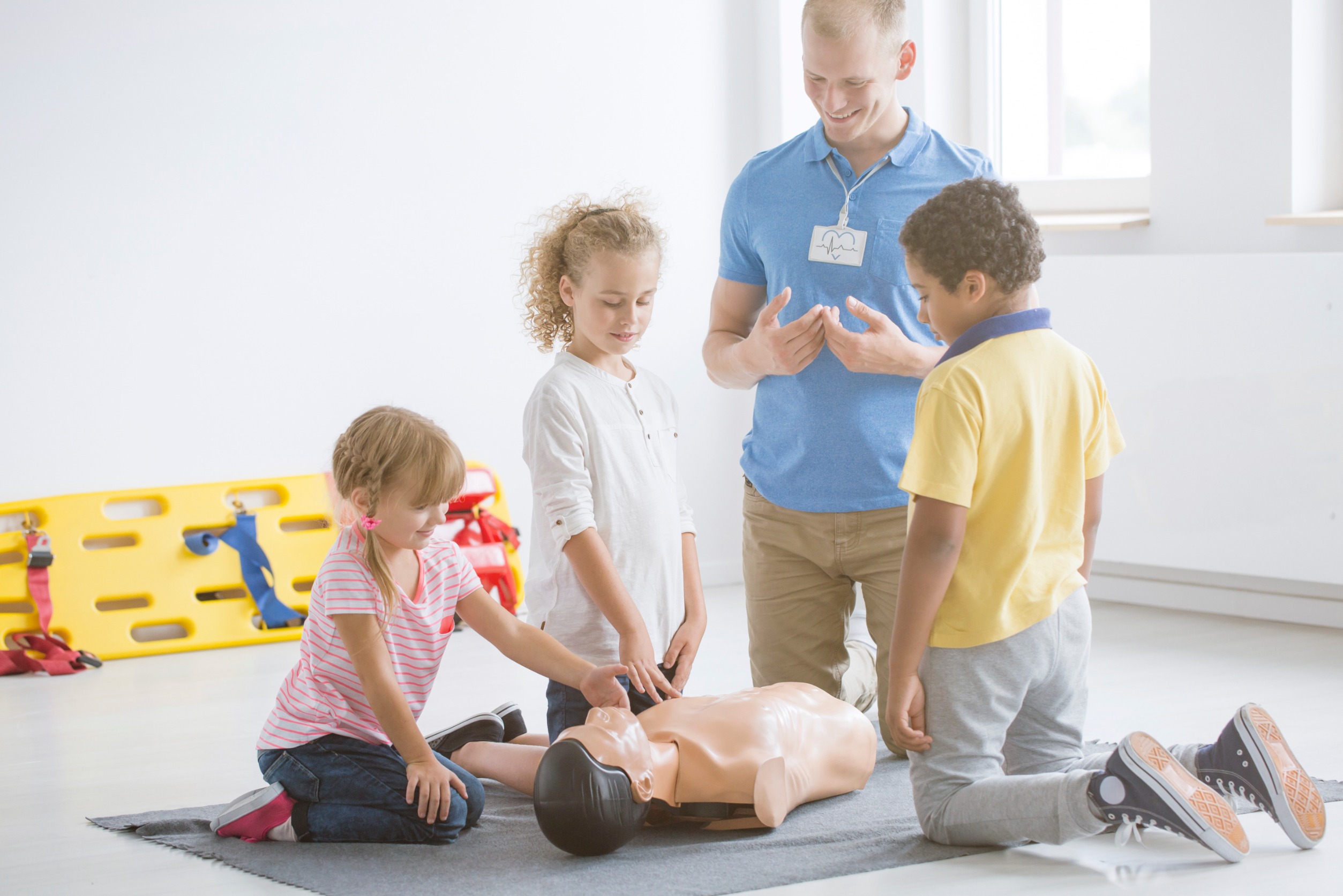In today’s fast-paced world of technology and innovation, it’s easy to overlook the value of traditional skills. While advancements continue to shape the way we live and work, there are certain timeless abilities that still hold importance. Knowing how to sew, cook from scratch, and read maps will still serve kids well in their adult life and help them save money, even in our modern digital society. Here are 11 seemingly outdated skills that should still be taught in school.
1. Basic Sewing
As clothing manufacturing becomes increasingly automated, the art of sewing by hand or machine is one of the outdated skills that’s often overlooked. However, the ability to mend garments and create simple designs still has environmental, artistic, and economic benefits. Teaching basic sewing in schools empowers students to repair and repurpose clothing, reducing waste and promoting sustainability. Moreover, sewing encourages creativity and problem-solving, fostering a sense of self-sufficiency and resourcefulness.
2. Cooking from Scratch
Food today is dominated by convenience, fast food, and delivery. As a result, cooking from scratch is one of the outdated skills that’s in danger of being forgotten. Preparing meals using fresh ingredients not only promotes healthier eating habits, but also cultivates an appreciation for food and its cultural significance. By teaching students to cook, schools would equip them with essential life skills for independent living and self-care. Additionally, cooking fosters teamwork and cooperation as students collaborate to create delicious meals together.
3. Handwritten Letters
Communication today is often instantaneous thanks to texting. However, the art of writing handwritten letters is a meaningful practice that should be preserved. Unlike digital messages, handwritten letters require thoughtfulness and intentionality, fostering deeper connections and emotional expression. Teaching students the value of handwritten correspondence encourages empathy and interpersonal skills, nurturing relationships beyond the confines of screens. Moreover, letter writing preserves a tangible record of personal history and sentimentality in an increasingly digital age.
4. Cursive Handwriting
Communication today is dominated by keyboards and touchscreens, making cursive handwriting seem somewhat archaic. However, it remains a valuable skill for cognitive development and personal expression. Learning cursive enhances fine motor skills and hand-eye coordination, while also preserving traditional modes of communication such as letter writing. Despite its declining use, the ability to read and write cursive fosters a deeper connection to language and culture.
5. Map Reading
With GPS navigation systems at our fingertips, the ability to read maps may seem obsolete. However, understanding cartography remains a valuable skill for spatial reasoning and geographic literacy. Teaching map reading in schools ensures that students can navigate the physical world confidently, whether they’re exploring their own neighborhoods or venturing into unfamiliar territories. Moreover, map reading fosters an appreciation for geography, culture and history, broadening students’ understanding of the interconnectedness of the world.
6. Basic First Aid
Accidents and emergencies can happen anywhere, making basic first-aid knowledge a crucial skill that should be taught in school. Instructing students how to administer CPR, apply bandages, and respond to common medical emergencies empowers them to take action and potentially save lives. Additionally, first aid training instills confidence and preparedness in students, equipping them with essential life-saving skills that transcend classroom boundaries. Up to a quarter of a million people each year could be dying unnecessarily because first aid isn’t known widely enough, making this one of the outdated skills kids need to know.
7. Time Management
In a society characterized by busyness and constant connectivity, the ability to manage time effectively is more important than ever. However, experts say many kids lack the time management skills they need to succeed. Teaching students this important competency would equip them with the tools to prioritize tasks, set goals, and balance responsibilities. By mastering time management, students can reduce stress, increase productivity, and achieve their full potential both academically and personally. Moreover, time management skills lay the foundation for success in the workplace, where efficient use of time is paramount.
8. Critical Thinking
With today’s information overload, the ability to think critically and discern fact from fiction is essential for navigating the complexities of the modern world. However, studies have shown that many students lack the ability to evaluate sources critically. Teaching students to question assumptions, evaluate evidence, and form well-reasoned opinions cultivates intellectual autonomy and resilience. Critical thinking skills empower students to analyze problems from multiple perspectives, fostering creativity and innovation. Moreover, critical thinking is a fundamental skill for responsible citizenship, enabling individuals to engage thoughtfully in democratic processes and contribute meaningfully to society.
9. Basic Money Management
Financial literacy is a vital skill for navigating the complexities of personal finance and economic decision-making. Teaching students the basics of budgeting, saving, and investing empowers them to make informed financial choices and avoid common pitfalls. By instilling good money habits early on, schools could equip students with the tools to achieve financial security and independence in adulthood. Additionally, financial literacy promotes economic equality by empowering individuals to take control of their financial futures and build generational wealth. However, not all states require financial literacy courses, leaving gaps in children’s education.
10. Public Speaking
Rhetoric and public speaking are traditional soft skills that should still be taught today but often aren’t required even at the college level. Despite advances in communication technology, the ability to speak confidently and persuasively in public remains a valuable ability in various facets of life. Whether giving a presentation in class or the workplace, effective public speaking skills are essential for conveying ideas and inspiring others. Teaching students to communicate articulately and engage audiences fosters self-confidence and leadership abilities. Public speaking also promotes empathy and understanding by encouraging individuals to connect with others through shared experiences and stories.
11. Handcrafts
Despite production often being driven by mass manufacturing and consumerism, the art of handcrafting offers a unique opportunity for creativity and self-expression. Whether it’s woodworking, pottery, or knitting, handcrafts allow individuals to create tangible objects with meaning and significance. Teaching handcrafts in schools not only preserves traditional artisanal skills but also promotes mindfulness and mental well-being. Engaging in handcrafts fosters patience and perseverance as students learn to appreciate the beauty of craftsmanship and seemingly outdated skills.
Resilience in an Evolving World
While the world continues to evolve rapidly, there are certain traditional skills that remain relevant and valuable in today’s society. By teaching these seemingly outdated skills in schools, we can ensure that future generations are equipped with the knowledge and abilities they need to thrive in an ever-changing world. From cursive handwriting to handcrafts, these abilities not only preserve our cultural heritage but also foster personal growth and resilience. Therefore, let’s stop overlooking the importance of these outdated skills and instead embrace them as essential components of a well-rounded education.
Read More
16 Craziest Things Latchkey Kids Did While Unsupervised
10 College Truths Professors Wish Students Understood Before Stepping on Campus

Vicky Monroe is a freelance personal finance and lifestyle writer. When she’s not busy writing about her favorite money saving hacks or tinkering with her budget spreadsheets, she likes to travel, garden, and cook healthy vegetarian meals.












